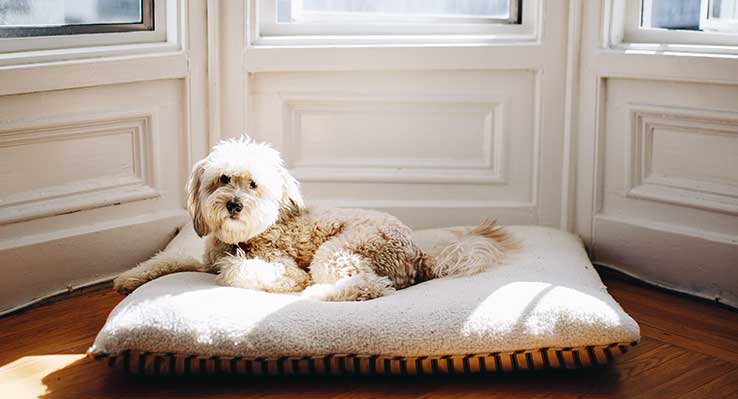Nevada is the 4th most pet-friendly state in the US with more than 71 million households owning pets. The rankings were based on pet population, pet laws, and rentals that accept pets. If you’re looking to lease a property for your family and dog, there are several considerations to look at so that you’ll find a suitable place to call home for you and your beloved pet. Here are important things that you should think about before launching your search.
Pet-Friendly Features
While many apartments and houses consent to canine animals living in the property, some may charge extra rent per month for that privilege so be sure to inquire about additional fees or deposits required for having pets. Understand the terms and conditions pertaining to pets as outlined in the lease agreement. Real estate listings will also highlight homes that cater to dogs and other pets. However, find out if there are restrictions on the size, breed, and number allowed. The agencies will publish the available space so that your dog can move freely without a problem. Depending on the breed and size of your pet, you might need at least 9 square feet for a dog that is 9in long. If you plan on putting your four-legged companion in a crate, there should be 6in of clearance over their head so that they can turn, stand, sit, and lie down comfortably. The Animal and Plant Health Inspection Service of the US Department of Agriculture (USDA) published guidelines on the minimum space requirements for dogs.
A fenced yard is also ideal because dogs need a lot of time outdoors whether it’s to relieve themselves, play, or release energy. Hence, a house that comes with pet doors is handy so that they can easily get in and out of the residence. In addition to the above features, the construction material of a house or apartment can play a role in determining whether it is easy to maintain it or not. Remember, dogs can create havoc with their paws and teeth. Hence, tiles or laminate floors are easy to care for and also gentle on your pooch’s paws. At the same time, they are sturdy enough and can withstand scratches without major damage that might necessitate expensive repairs.
Proximity to Amenities and Green Spaces
Outdoor space is important for a dog’s physical and mental well-being. It needs regular physical activity to maintain a healthy weight, develop muscle, and avert behavioral problems related to unspent energy. Backyards and gardens provide opportunities for your furry friends to run, play fetch, and socialize. The variety of sights, sounds, and smells outdoors stimulates their minds. Therefore, outdoor exploration and sensory stimulation can block boredom and reduce the risk of behavioral issues. Social interaction is not only beneficial to humans, but also your dog’s health. Results of a study by the Dog Aging Project revealed that healthier aging is possible in dogs when they socialize with humans and pets.
However, if you’re planning to live in an apartment, you must look at the proximity of your location to parks and walking trails. Access to nearby green spaces and trails allows you to take your pet for walks and guarantees that your pooch gets their daily dose of exercise and outdoor activity. Besides outdoor spaces, proximity to pet services such as veterinarians, dog care facilities, and supply stores can make life easier saving you time and money.
Dog-Friendly Communities
A community that welcomes dogs or pets can make a big difference on the quality of life for both humans and their canine friends. Living in a pet-friendly residential area promotes inclusivity where individuals, families, and their dogs can participate in community activities without discrimination due to pet ownership. To illustrate, neighborhoods that are accepting of dogs usually provide amenities for the animals to socialize with other animals and people. There may be designated dog parks or communal pet-friendly areas. Pet parents may share experiences with other dog owners that can forge a sense of community among residents. This feeling of belonging can enhance overall well-being and contributes to a pleasant living environment. Moreover, policies in inclusive communities that clearly outline the rules and regulations of pet ownership in a community also prevent conflicts between the inhabitants and encourage harmonious living arrangements.
Fenced backyards, adequate space, and proximity to amenities for dog services are ideal rental properties. In addition to permitting canines to live in rented apartments or houses, dog-friendly neighborhoods also promote harmonious living environments.
